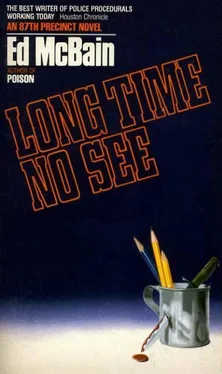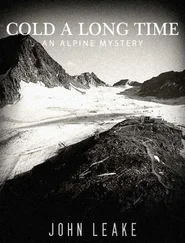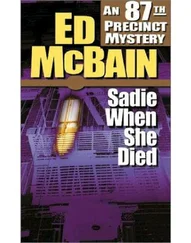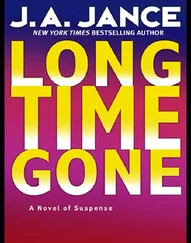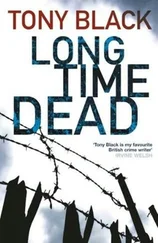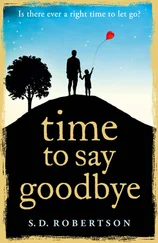“Mrs. Harris,” he said, “could we step outside a moment, please?”
“I got nothing more to say to you,” she said.
“Let’s not argue here,” he said.
She looked at the coffins.
“I’d like to talk to you,” he said. “Would you please step outside?”
Reluctantly, she rose from her chair and walked silently through the open arched doorway into the lobby. Carella followed immediately behind her.
“You satisfied about Charlie?” she whispered. Her mouth was tight, her hands clenched one over the other at her waist.
“I had to talk to him,” Carella said.
“Why? I told you he didn’t do it.”
“He was a possibility.”
“You still think he’s a possibility?”
“No.”
“You hassled him cause he’s black,” Sophie said.
“No. That isn’t true, Mrs. Harris. I didn’t hassle him, I questioned him. And only because he might have killed your son and daughter-in-law.”
She looked into his face.
“I want to find whoever killed them,” Carella said.
She kept looking at him.
“Believe me.”
“All right,” she said, and nodded.
“I have nothing,” he said. “Nothing at all. I need your help. I need you to remember anyone Jimmy or his wife might have argued with, or—”
“No,” Sophie said, and shook her head. “No one. There was no one.”
“Or even disagreed with. Sometimes a person will take offense at something, and allow—”
“No one. You didn’t know Jimmy, he never said a harsh word to anyone in his life.”
“Mrs. Harris, whoever killed Isabel seemed to be searching for something. Do you have any idea what it might have been?”
“No.”
“Did Jimmy ever mention any hidden money or jewelry, anything like that?”
“No.”
“Some people try to hide their valuables from burglars—”
“He had no valuables to hide.”
“Mrs. Harris, was Jimmy involved with anyone who had a criminal record?”
“No,” Sophie said, and immediately asked, “Would you put that question to a white man?”
“Listen,” Carella said, “Let’s get off that, okay? Your son was brutally murdered, that’s the worst crime there is, I want to know if he knew any criminals. That’s a logical question, black or white, so let’s cut it out.” He had raised his voice, and mourners in the lobby were turning to look at him. He lowered his voice to a whisper again and said, “Did he know anyone with a criminal record?”
“No. Not that he ever spoke of directly.”
“What do you mean? Did he speak of criminal friends in directly?”
“No, he never spoke of no criminal friends.”
“Then what did you mean by the word ‘directly.’ ”
“My son would never do nothing wrong in his life,” Sophie said.
“Mrs. Harris, you just said he never spoke directly of any criminal friends. Now what does that mean?”
“Nothing.”
“Did your son ever mention some sort of criminal activity in which he was involved?”
“He wasn’t involved in no criminal activity.”
“Was he planning some sort of criminal activity?”
“I don’t know. I honestly don’t know. He was a troubled person.”
“How? Troubled how?”
“The nightmares.”
“What nightmares?”
“From when he first got home from Fort Mercer.”
“Fort Mercer?”
“The Army hospital there. Upstate. Near the prison.”
“What kind of nightmares?”
“He’d wake up hollering. I’d go in his room, he’d be sitting up in the middle of his bed, staring into the darkness like he could see. I’d take him in my arms, he’d be covered with cold sweat. I’d say, ‘Jimmy, what is it? What is it, son?’ Nothing. No answer. He’d be shaking in my arms.”
“Did he ever mention these nightmares when he was awake?”
“No. But Isabel told me he was still having them.”
“When did she tell you that?”
“Just recently.”
“Mrs. Harris, you said you honestly didn’t know if Jimmy was planning some sort of criminal activity. Is it possible that he was?”
“I guess.”
“Did he say anything about it to you?”
“He said he was going to make them rich.”
“Who?”
“Him and Isabel.”
“Did he say how?”
“Mr. Carella, I got to tell you the truth. I think he was maybe planning something would be against the law.”
“Did he say that?”
“No.”
“Then what makes you think...?”
“Well, why else would he need his old Army buddy?”
“What do you mean?”
“He told me he’d contacted one of his buddies.”
“An Army buddy?”
“I guess he meant an Army buddy.”
“Who?”
“I don’t remember his name.”
“Did he say why he’d contacted him?”
“He said the man was going to help him and Isabel get rich.”
“Did he say how?”
“No.”
“Then why do you figure he was planning something against the law?”
“I don’t know why. Maybe it’s cause soldiers are trained to use guns.”
“But your son never actually said—”
“No, he didn’t.”
"Well,” Carella said, and shrugged. He was thinking it sounded like a movie — a pair of old Army pals getting together to knock over a bank or a Las Vegas casino. He supposed it was possible; anything was possible. But he doubted it. Still — it was possible, what the hell.
“Thank you,” he said, “you’ve been very helpful.”
But he wasn’t sure she had been.
The squadroom looked rather like a cathedral that Saturday morning. Don’t laugh. November sunshine slanted through the wire-mesh grilles on the long windows, and shafts of golden light touched desk tops and typewriters. Dust motes sparkled in the fanning rays of the sun. The radio on Genero’s desk was playing organ music. Carella expected a religious miracle, but none came.
Genero was typing.
He had bought himself a paperback pocket dictionary and was looking up words. Repeatedly, he glanced from typewriter keyboard to open dictionary. His stop-and-go typing irritated Carella; it was obscene to be typing in church. Besides, there were no more miracles in the world, and the case was getting staler than yesterday’s bagels.
The organ music swelled into the squadroom. Carella felt like going to confession. He had not been to confession since he stopped going to church. That was when he was fifteen. Coincidentally, that was also when he lost his virginity on the roof of an apartment building in Riverhead, with a girl named Suzie Ryan, who was Irish. Suzie was seventeen. Woman of the world. She went to the same church Carella did. After his rooftop awakening, he figured he should go to confession and mention that he had sinned. Then he wondered if the priest would ask him who his sinful partner had been. He knew they could see your face in the dark there. The priest would know it was Stephen Louis Carella who had sinned, and then he would want to know who the willing young lady had been, and Carella would then have to implicate Suzie Ryan, who had been generous and passionate and whom he would have followed into the mouth of a cannon at that budding stage of his career. He wondered what to do. He decided not to go to confession. He also decided never to go to church again, but that had nothing to do with Suzie. He decided not to go to church because church put him to sleep. His father said, “Why don't you go to church no more?” Carella answered, “Why don’t you, Pop?” His father said, “Never mind.”
He realized now that if only he hadn’t stopped going to church when he was fifteen, he could pray to God for a miracle or at least a clue, and all his problems would go up the chimney. Instead, the radio was playing organ music and Genero was typing in a tempo out of meter with the fat chords that floated out on the air, and Carella not only did not have a clue, he also did not have an inkling of where to go next.
Читать дальше
